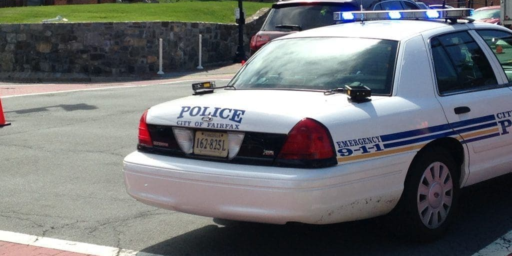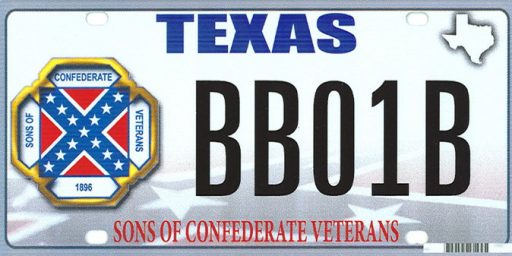Dog Poop Economics
Stephen Dubner and Steven Levitt apply Freakonomics to the problem of uncollected dog poop, which some critics will likely find quite appropriate.
Dog-Waste Management (NYT | RSS)
Most of the animal dung produced in today’s New York comes from our dogs. (Estimates of the dog population vary widely, but one million is a good guess.) All their poop doesn’t just lie there, of course. In 1978, New York enacted its famous (and widely imitated) “pooper scooper” law, and the city is plainly cleaner, poop-wise, than it was. But with a fine of just $50 for the first offense, the law doesn’t provide much financial incentive to pick up after your dog. Nor does it seem to be vigorously enforced. Let’s pretend that 99 percent of all dog owners do obey the law. That still leaves 10,000 dogs whose poop is left in public spaces each day. Over the last year, the city ticketed only 471 dog-waste violations, which suggests that the typical offender stands a roughly 1-in-8,000 chance of getting a ticket. So here’s a puzzle: why do so many people pick up after their dogs? This would seem to be a case in which social incentives – the hard glare of a passer-by and the offender’s feelings of guilt – are at least as powerful as financial and legal incentives.
[…]
Here’s an idea: DNA sampling. During the licensing procedure, every dog will have to provide a sample of saliva or blood to establish a DNA file. Then, whenever a pile of poop is found on the sidewalk, a sample can be taken to establish the offender’s DNA. (Because stomachs and intestinal walls shed so many cells, poop is in fact a robust DNA source; during a murder trial in Indiana in 2002, the defendant was convicted in large part because the dog poop in his sneaker tread linked him to the scene of the crime.) Once the fecal DNA is matched to a given dog’s DNA file, the dog’s owner will be mailed a ticket. It might cost about $30 million to establish a DNA sample for all the dogs of New York. If people stop violating the law, then New York has spent $30 million for cleaner streets; if not, the $30 million is seed money for a new revenue stream.
Unfortunately, there’s a big drawback to this plan. In order to match a pile of poop with its source, you will need to have every dog’s DNA on file – and in 2003, the most recent year on record, only 102,004 dogs in New York were licensed. Even though a license is legally required, costs a mere $8.50 a year and can be easily obtained by mail, most dog owners ignore the law, and with good reason: last year, only 68 summonses were issued in New York City for unlicensed dogs. So even if the DNA plan were enacted today, most offenders would still go unpunished. In fact, it stands to reason that the typical licensed dog is less likely to offend than the typical unlicensed dog, since the sort of owner who is responsible enough to license his dog is also most likely responsible enough to clean up after it.
How, then, to get all of New York’s dogs licensed? Instead of charging even a nominal fee, the city may want to pay people to license their dogs. And then, instead of treating the licensing law as optional, enforce it for real. Setting up random street checks for dog licenses may offend some New Yorkers, but it certainly dovetails nicely with the Giuliani-era “broken windows” approach to low-level crime.
Before you dismiss the entire dog-DNA idea as idiotic – which, frankly, we were about to do the moment it popped into our heads – consider this: it turns out that civic leaders in Vienna and Dresden have recently floated the same idea. (Indeed, one Vienna politician cited Mayor Giuliani as his inspiration.) Closer to home, an eighth-grade girl in Hoboken, N.J., has also proposed the DNA solution. During a meeting last year of the Hoboken City Council, Lauren Mecka, the daughter of a police captain, argued her dog-poop case. “While adults like yourselves are appalled and disgusted by the sight of the uncollected dog poop that adorns our parks and sidewalks,” she said, “it is children like myself and younger who run the greater risk of contact and exposure. We’re the ones who ride our bikes, throw our balls and roll our blades on the city’s sidewalks. And we’re the ones who have our picnics, stage our adventures and carry out our dragon-slaying fantasies on our parks’ grassy lawns.”
I’m sure Giuliani will be quite pleased that his name readily came to mind when the matter of dog poop was raised.
One suspects that the fine for not picking up after one’s dog would have to be mighty steep, indeed, in order to pay the salaries of the CSI: Dog Poop squad. Ordinarily, people with the scientific background to perform DNA testing will seek jobs not involving pet excrement.






This sort of “freakonomics” reminds me of an old Husker Du song, which featured the following money making scheme:
“You feed the rats to the cats and the cats to the rats and get the cat skins for nothing.”
That’s what this sounds like to me.
is this what they call broken window theory??
Freakonomics was a great book — definitely worth a read.
Officer, I was framed. Someone took my dog doo out of the trash and tossed it on the sidewalk!
I thought the idea looked familiar.
Just put out a new scientific study, that dog poop, is the main cause of global warming, and it will disappear in a moment because it can then all be delivered to the UN since that is such a concern of theirs. There,they will dispose of it where know one will ever know, just like the Iraq’s oil for Food money – it’ll disappear!
I’m waiting for a suggested free market solution to the poop problem.
A century ago the free market took care of the horse poop problem by replacing horses with autos.
spencer, Yes, as pointed out several times in the linked article.